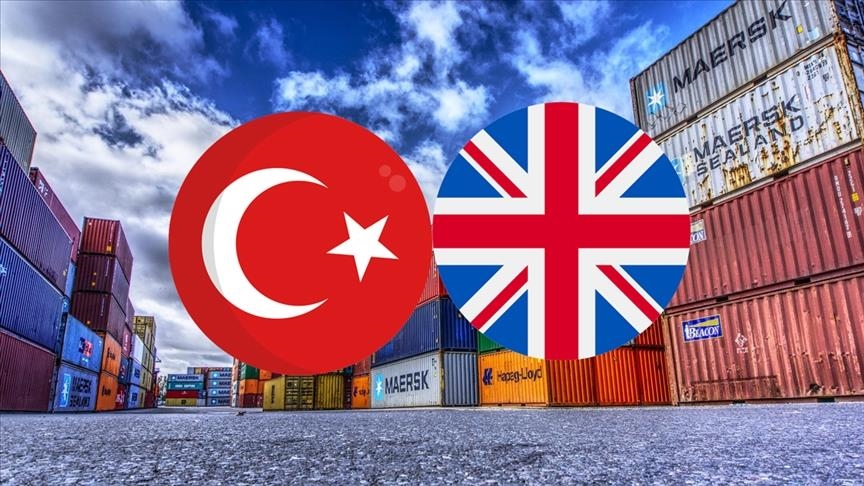
The EU-China Comprehensive Agreement on Investment, which had been negotiated since October 2013 between the European Union (EU) and China, was agreed upon in principle on 30 December 2020. With this agreement, it is aimed to realize the principle of flexibility in the access of the two parties to each other’s markets.
The post-Brexit United Kingdom of Great Britain and Northern Ireland (the UK, commonly referred to as Britain), is trying to get involved in the global economic race with ambitious plans for a “Global Britain” with stronger ties with the Asia-Pacific, where most of the UK’s former colonies are located.[1] In this context, the British government announced on 31 January that it will apply to join the Comprehensive and Progressive Agreement for Trans-Pacific Partnership (CPTPP)[2], the free trade zone that which includes 11 Asia-Pacific countries[3].
The UK, which had prepared to leave the EU for years, had started to take steps to strengthen its economic relations with China before Brexit. In this process, China’s officials in charge of the economy have stated that “regardless of what happens between London and the EU, the relations between China and the UK will grow steadily and sturdily”. In fact, the officials of both sides even sought ways to expand the UK’s role within the scope of the One Belt One Road Project (Belt and Road Initiative), which aims to strengthen trade between Asia and Europe by implementing infrastructure projects in Beijing’s transportation field.[4] The UK’s withdrawal from the EU means that it has to negotiate its agreements with China by itself, one of its main trading partners. Additionally, the EU-China agreement puts the United States and the EU in opposition to each other by jeopardizing the efforts to revitalize transatlantic relations. In this situation, the UK’s attitude in relations with China becomes important. Therefore, the policy decisions of London to determine the balance in relations with Washington and Beijing have a special sensitivity.
In 2015, the UK declared that it was experiencing a “Golden Period” in its relations with China. During this period, Chinese President Xi Jinping made a visit to the UK, while the representative of the Huawei company was the guest of David Cameron, the British Prime Minister of that time. At the end of 2020 along with Brexit, this policy has been largely reversed. Obstacles have been imposed on the implementation of the 5G communication system in the UK that was developed by Huawei.[5] This ban on Huawei means that 5G will arrive in the UK at a later date and in a costlier way. The deterioration of relations with China means that the initiatives aimed to be created in some sectors in the UK will also fail.[6] Therefore, this anti-Chinese policy is against the economic interests of the British people.
Meanwhile, the UK hopes to increase its strategic importance for the United States by paying more attention to the special relationship between the US and itself. This will inevitably have negative effects on the China-UK economic and trade cooperation.[7] At the same time, almost simultaneously, an EU-China investment agreement has been agreed upon. In truth, the scope of this investment agreement is much narrower than the comprehensive free trade agreements that the EU has negotiated with countries such as Canada, Japan, and the UK. It mainly covers certain non-tariff barriers to business and investment.[8] After the agreement is put into practice, it may have negative effects on the economy in terms of the UK, but the UK considered this risk and turned to a policy of developing relations with the US to be least affected by the negative effects of this agreement.
Given the growing economic ties between China and Turkey in recent years, the effects of the EU-China investment agreement are important to Turkey. Within the context of overcoming economic difficulties, Turkey seeks to give more attention to improving its relations with the Association of Southeast Asian Nations (ASEAN) and with China. At the same time, any kind of rapprochement that takes place between Turkey and China causes concern among Uighurs Turks, who have taken refuge in Turkey after having faced persecution in China. On the other hand, the EU is one of Turkey’s biggest economic partners.[9] Even though the EU-China agreement does not contain any items directly related to Turkey, Turkey’s economy and thus its companies are expected to be impacted by the agreement when one considers Turkey’s ties with the Chinese and the EU markets. In such a case, holding onto market share will become much more difficult for Turkish companies in the sectors in which the EU also invests. This is because the EU and Turkey have invested in similar sectors in China. Therefore, the EU’s shift of its investments to China will create a risk in terms of foreign investment for Turkey.
*Picture: Anadolu Agency
[1] Annabelle Timsit, “Post-Brexit Britain has its sights on Asia—if it can get over Europe first”, Quartz, January 14, 2021, https://qz.com/1956687/the-uk-plots-its-post-brexit-strategy-for-europe-and-asia/
[2] Tom Edgington, “Brexit: What trade deals has the UK done so far?”, BBC News, February 8, 2021, https://www.bbc.com/news/uk-47213842
[3] Australia, Brunei, Canada, Chile, Japan, Malaysia, Mexico, New Zealand, Peru, Singapore, and Vietnam
[4] “İngiltere'den AB Sonrası Dönem İçin Çin Hamlesi”, Amerikanın Sesi, 16 Aralık 2017, https://www.amerikaninsesi.com/a/ingiltere-ve-cinden-yeni-ekonomi-anlasmalari/4166642.html
[5] John Ross, “Why is post-Brexit Britain adopting different path with EU toward China?”, Global Times, January 5, 2021, https://www.globaltimes.cn/page/202101/1211863.shtml
[6] John Ross, “London’s China policy will be decided in DC”, Global Times, February 21,2021, https://www.globaltimes.cn/page/202102/1216048.shtml
[7] Wang Wengen, “UK’s opportunist and adventurist diplomacy with China a dead end pursuit”, Global Times, February 22, 2021, https://www.globaltimes.cn/page/202102/1216198.shtml
[8] Jim Brunsden, Michael Peel & Sam Fleming, “What is in the EU-China investment treaty?”, Financial Times, December 31, 2020, https://www.ft.com/content/8b810ff7-457d-46a3-8ec8-4ac52f6f1862
[9] “Turkey seeks to enhance ties with ASEAN amid COVID-19 economic woes”, Xinhua, January 21, 2021, http://www.xinhuanet.com/english/2021-01/21/c_139687034.htm
© 2009-2025 Center for Eurasian Studies (AVİM) All Rights Reserved
No comments yet.
-
 IS THE DOMINANT ROLE OF THE DOLLAR IN GLOBAL FINANCE CHANGING?
IS THE DOMINANT ROLE OF THE DOLLAR IN GLOBAL FINANCE CHANGING?
Şevval Beste GÖKÇELİK 26.05.2022 -
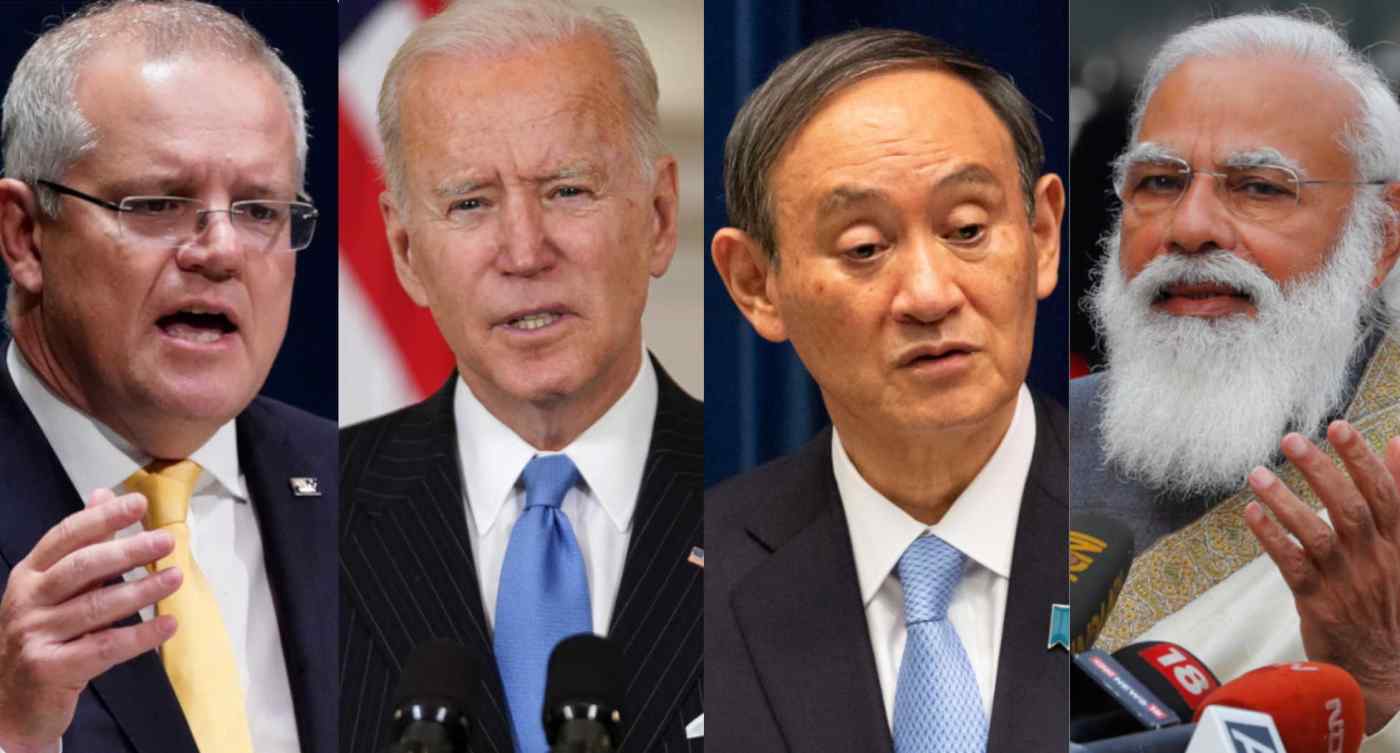 THE QUAD: TURNING POINT FOR THE INDO-PACIFIC
THE QUAD: TURNING POINT FOR THE INDO-PACIFIC
Şevval Beste GÖKÇELİK 01.04.2021 -
 THE DOCUMENTS EXPOSING CHINA’S HUMAN RIGHTS VIOLATIONS
THE DOCUMENTS EXPOSING CHINA’S HUMAN RIGHTS VIOLATIONS
Şevval Beste GÖKÇELİK 27.12.2021 -
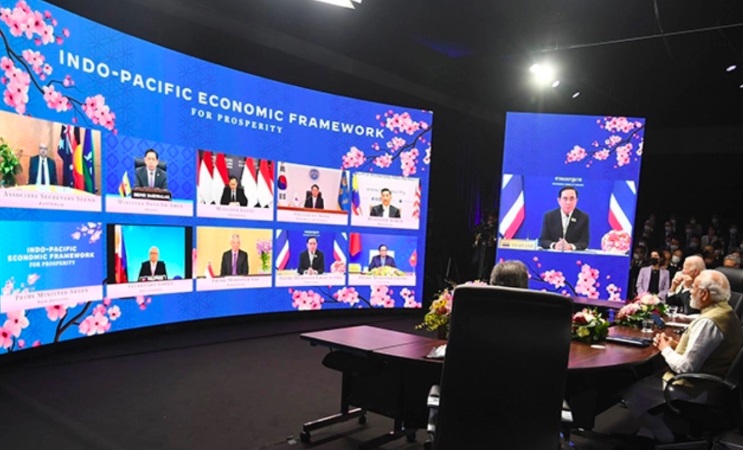 ECONOMIC INTEGRATION GROWS IN INDO-PACIFIC
ECONOMIC INTEGRATION GROWS IN INDO-PACIFIC
Şevval Beste GÖKÇELİK 07.06.2022 -
 THE EFFECT OF THE UYGHUR TURKS ON TURKEY-CHINA RELATIONS
THE EFFECT OF THE UYGHUR TURKS ON TURKEY-CHINA RELATIONS
Şevval Beste GÖKÇELİK 06.01.2021
-
 THE ARMENIAN PATRIARCHATE OF JERUSALEM COMPLAINS OF RIGHTS VIOLATIONS WHILE CONTINUING ITS UNDUE POSSESSION
THE ARMENIAN PATRIARCHATE OF JERUSALEM COMPLAINS OF RIGHTS VIOLATIONS WHILE CONTINUING ITS UNDUE POSSESSION
AVİM 05.04.2018 -
 RUSSIA QUESTIONS 'UNUSUAL' UKRAINE ELECTION
RUSSIA QUESTIONS 'UNUSUAL' UKRAINE ELECTION
Hande Apakan 06.05.2014 -
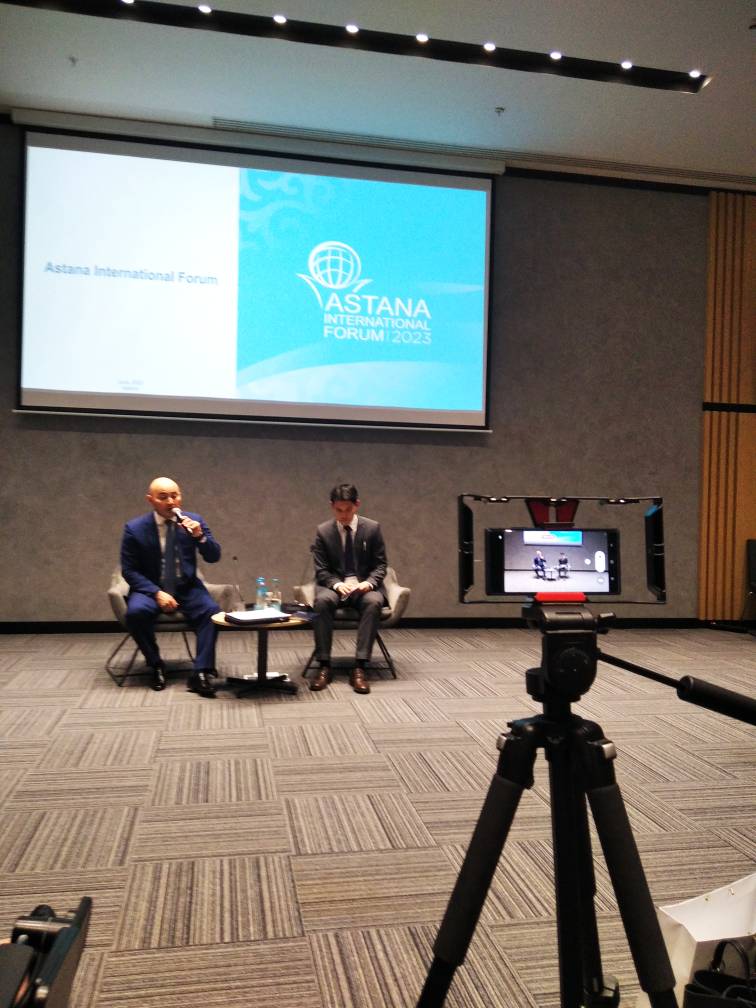 KAZAKHSTAN'S ECONOMIC AND FOREIGN POLICIES: NOTES FROM ASTANA - I
KAZAKHSTAN'S ECONOMIC AND FOREIGN POLICIES: NOTES FROM ASTANA - I
Turgut Kerem TUNCEL 15.06.2023 -
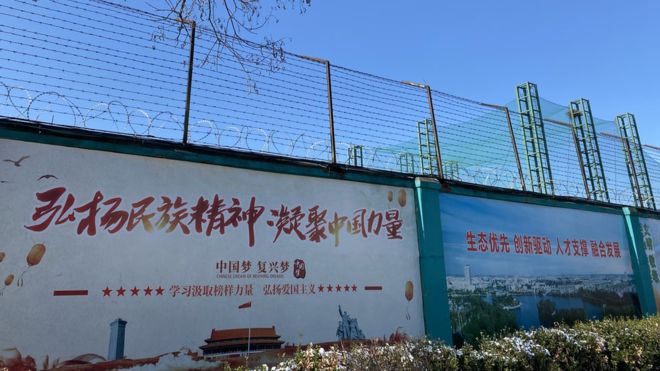 FACTORIES USING FORCED LABOUR OF THE UYGHURS PROVIDE SUPPLIES FOR 83 WELL-KNOWN BRANDS
FACTORIES USING FORCED LABOUR OF THE UYGHURS PROVIDE SUPPLIES FOR 83 WELL-KNOWN BRANDS
Gülperi GÜNGÖR 09.03.2020 -
TURKEY AND THE NEW CONFIGURATIONS IN CENTRAL ASIA
Alev KILIÇ 20.09.2013
-
25.01.2016
THE ARMENIAN QUESTION - BASIC KNOWLEDGE AND DOCUMENTATION -
12.06.2024
THE TRUTH WILL OUT -
27.03.2023
RADİKAL ERMENİ UNSURLARCA GERÇEKLEŞTİRİLEN MEZALİMLER VE VANDALİZM -
17.03.2023
PATRIOTISM PERVERTED -
23.02.2023
MEN ARE LIKE THAT -
03.02.2023
BAKÜ-TİFLİS-CEYHAN BORU HATTININ YAŞANAN TARİHİ -
16.12.2022
INTERNATIONAL SCHOLARS ON THE EVENTS OF 1915 -
07.12.2022
FAKE PHOTOS AND THE ARMENIAN PROPAGANDA -
07.12.2022
ERMENİ PROPAGANDASI VE SAHTE RESİMLER -
01.01.2022
A Letter From Japan - Strategically Mum: The Silence of the Armenians -
01.01.2022
Japonya'dan Bir Mektup - Stratejik Suskunluk: Ermenilerin Sessizliği -
03.06.2020
Anastas Mikoyan: Confessions of an Armenian Bolshevik -
08.04.2020
Sovyet Sonrası Ukrayna’da Devlet, Toplum ve Siyaset - Değişen Dinamikler, Dönüşen Kimlikler -
12.06.2018
Ermeni Sorunuyla İlgili İngiliz Belgeleri (1912-1923) - British Documents on Armenian Question (1912-1923) -
02.12.2016
Turkish-Russian Academics: A Historical Study on the Caucasus -
01.07.2016
Gürcistan'daki Müslüman Topluluklar: Azınlık Hakları, Kimlik, Siyaset -
10.03.2016
Armenian Diaspora: Diaspora, State and the Imagination of the Republic of Armenia -
24.01.2016
ERMENİ SORUNU - TEMEL BİLGİ VE BELGELER (2. BASKI)
-
AVİM Conference Hall 24.01.2023
CONFERENCE TITLED “HUNGARY’S PERSPECTIVES ON THE TURKIC WORLD"









